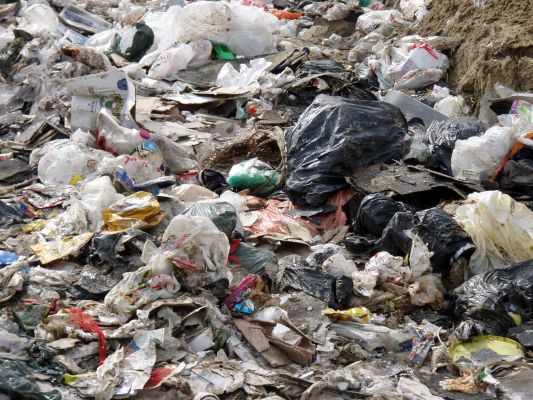
Enough is enough - ban polythene bags
Historically, it may be difficult to pinpoint which time in our national history the polythene emerged.
What is not contestable is the fact that it has since evolved to become a menace.
We used to eat ‘waakye’ and beans and gari in leaves and carried things in brown paper bags. We used old newspapers and cement paper for other stuff.
Even drinking water was carried in pots and flavoured with burnt palm-nut husk and big, well-cleaned and shiny saucepans with about two cups for all customers.
The health implications of easy transmission of disease were raised and gradually drinking water was tied in rubber bags, and then the almighty sachet took over.
At first it looked convenient, and to some, even sexy, as users likened it to the female breast, playing all sorts of mischief as they squeezed to drink.
Like most borrowed technology, we got comfortable using it but obviously did not plan or think about how to effectively dispose of it.
With these sachet bags came carrier bags made of polythene which we instantly embraced and affectionately christened “take away”.
Since then we have not looked back. The manufacturers and sellers of these polythene bags have succeeded in even increasing our love for polythene as they have provided us with different colours and designs of it.
Gradually, an industry has been created that is definitely putting food on the table of some people, including importers and manufacturers of all manner of polythene products, but the devastating effects of the continued use of these products have equally become sufficiently manifest.
Just a glance at the environment tells the story of what the side effects of our love for this polythene is doing to us.
The whole nation has become so filthy and day in day out the situation gets worse as the manufacturing and use of these polythene bags continue with no proper system in place to dispose of them.
So our gutters are choked with filth, a large portion of which is polythene material.
To compound the problem, this leads to floods at the least rains.
In houses where there are no toilets, tenants do their thing inside polythene bags and hurl them through their windows without caring where they land.
Our beaches are no longer pleasure resorts because the sea is filled with these used polythene bags and the sand is mixed with same.
Our rivers are suffering the same fate and the whole environment has become so much of an eyesore as we bath to clean our bodies but drive and walk through filth.
And this is happening under the watch of state institutions paid and mandated to seek our welfare.
The executive looks on, as well as the legislature, the Environmental Protection Agency and civil society, including the church.
Debates and conferences have been held to determine what to do with this national crisis to no avail and such efforts have cost us money.
Attempts at segregating and recycling have not produced the desired results.
A few years ago, it was decided that only bio-degradable material should be used in the production of polythene but the type of material is insignificant.
What should matter is the outcome of whatever is produced.
Can we say with confidence that since this directive, the polythene menace is abating? A definite no will be the answer.
As the saying goes, it is only a fool who sticks to the same ways of doing things and expects different results.
Thankfully, we are not talking about rocket science here. Rwanda did it and recently Kenya has followed suit by banning polythene bags.
For how long are we going to play the ostrich while our environment and our health suffer? Deaths from diseases such as cholera have become part of us as a result of filth.
I think the time to ban polythene is now. As the Bible admonishes, ‘If your right hand causes you to sin, cut it off and throw it away.’
We need the same zeal and commitment as we have invested in ‘galamsey’ to see some results in getting rid of the filth we are drowning in.
It may not suit us all, and some may wonder how we are going to live without it; but the national interest must override parochial interests.
